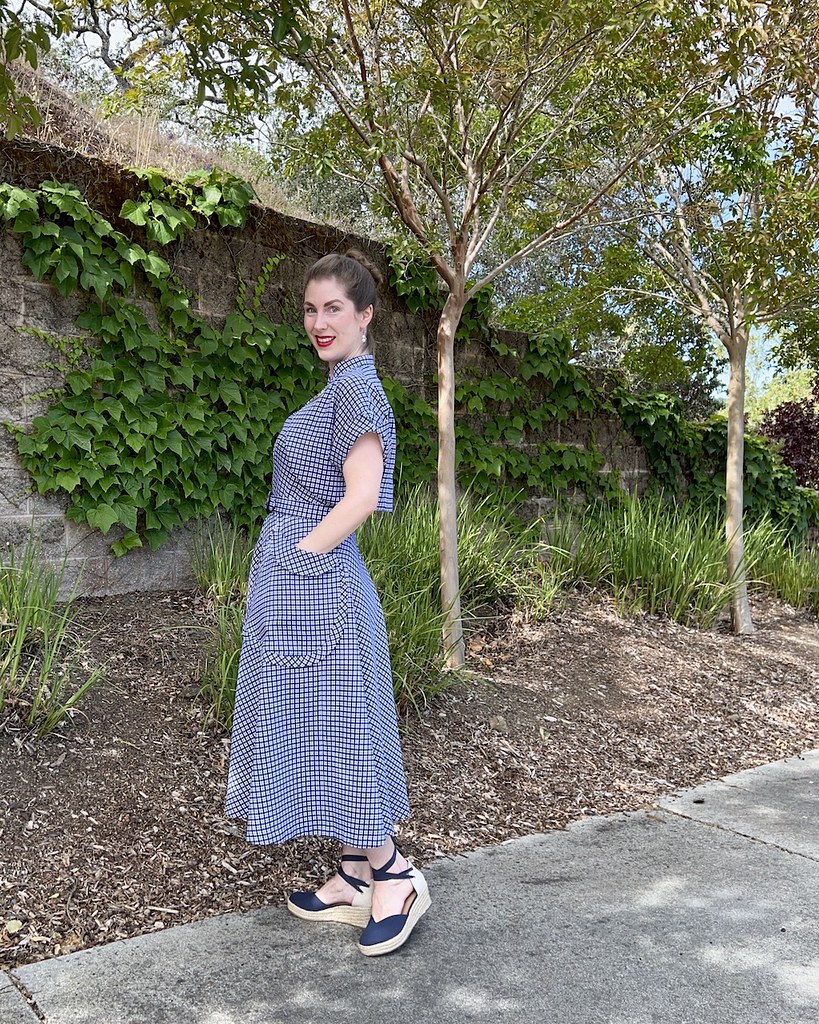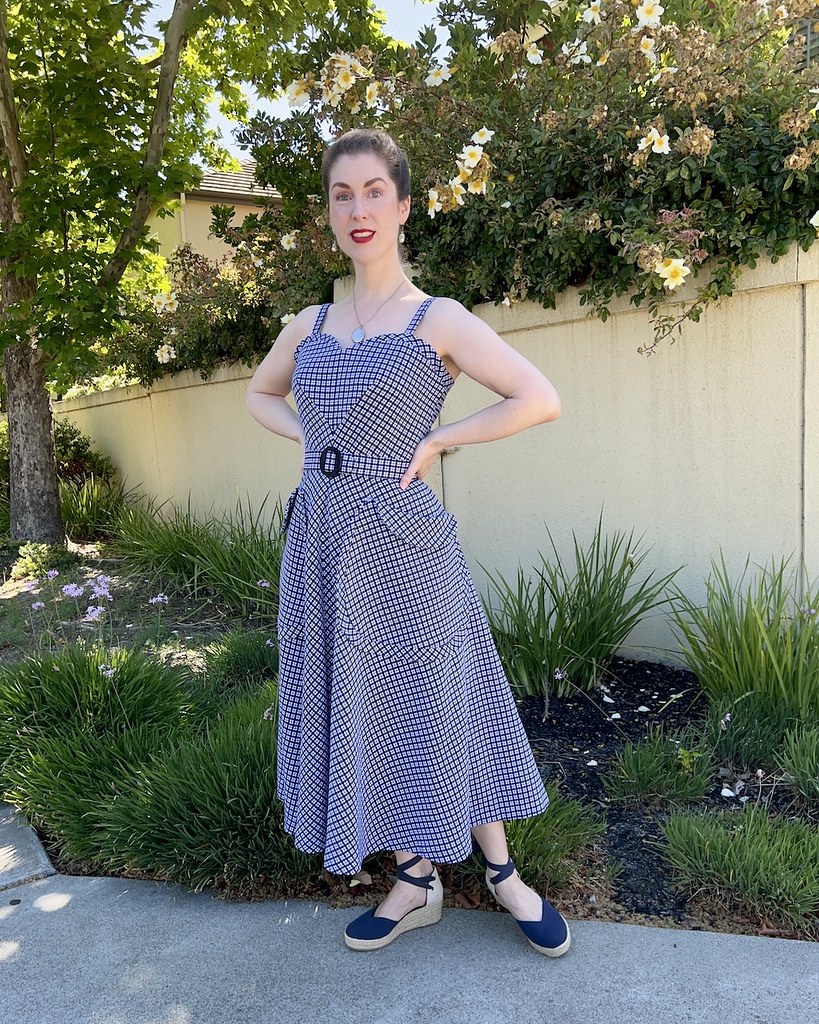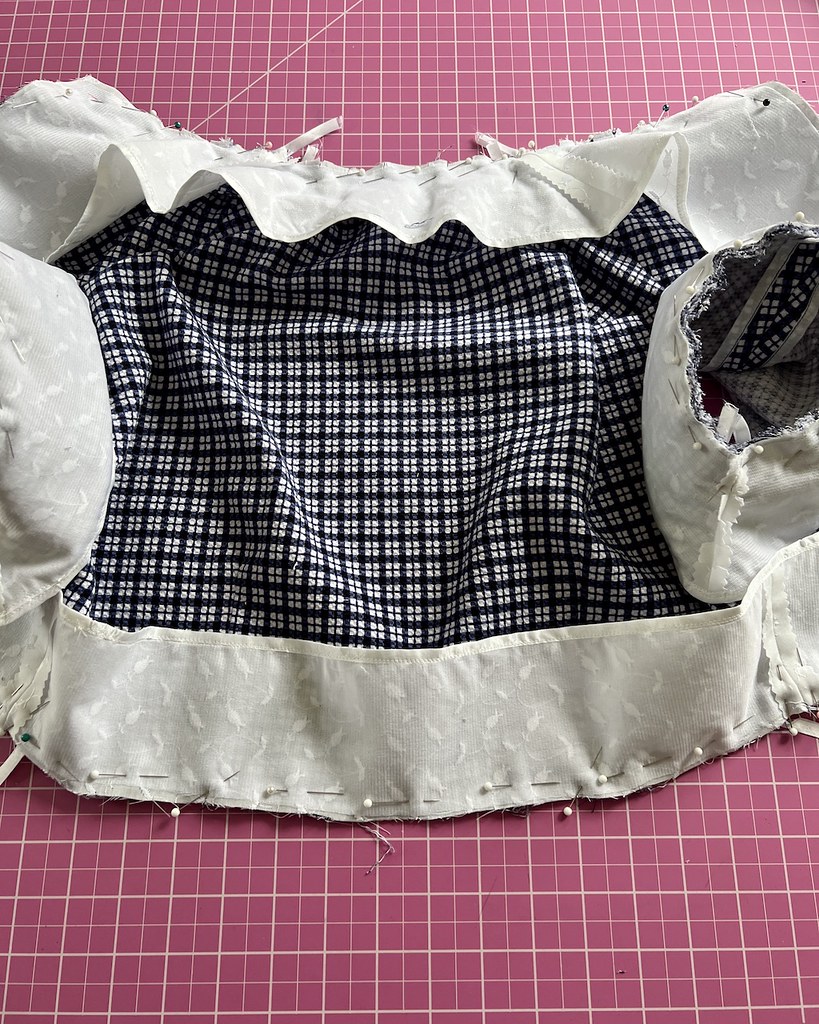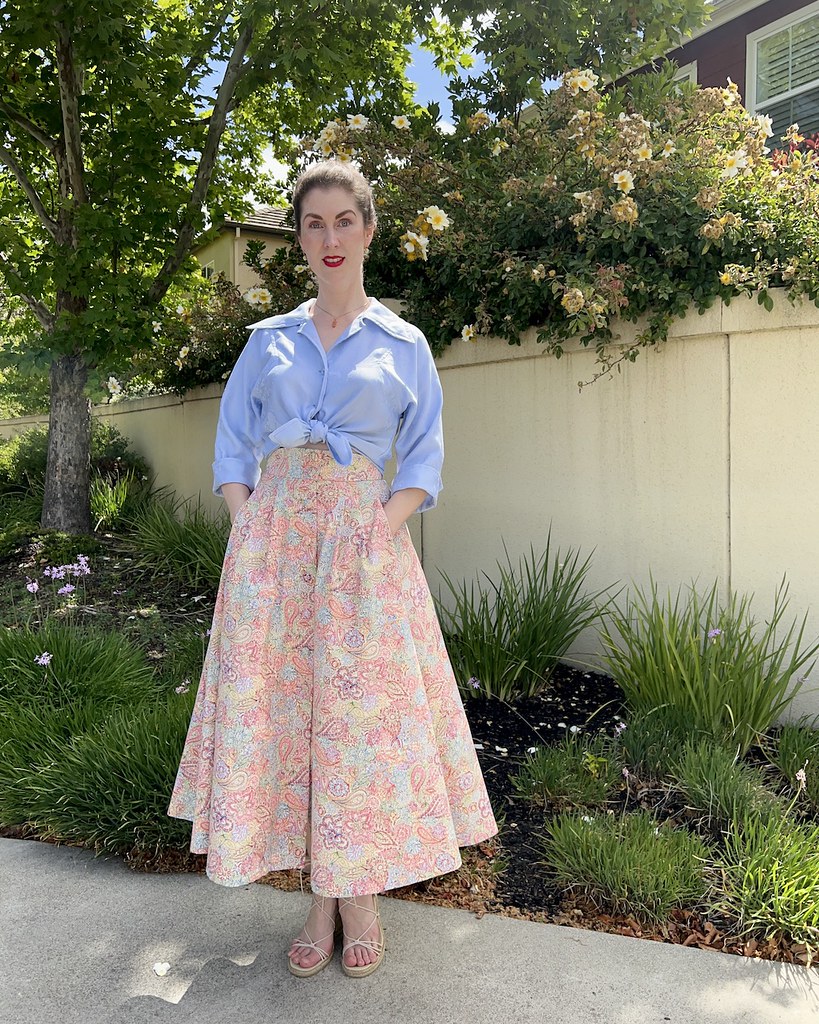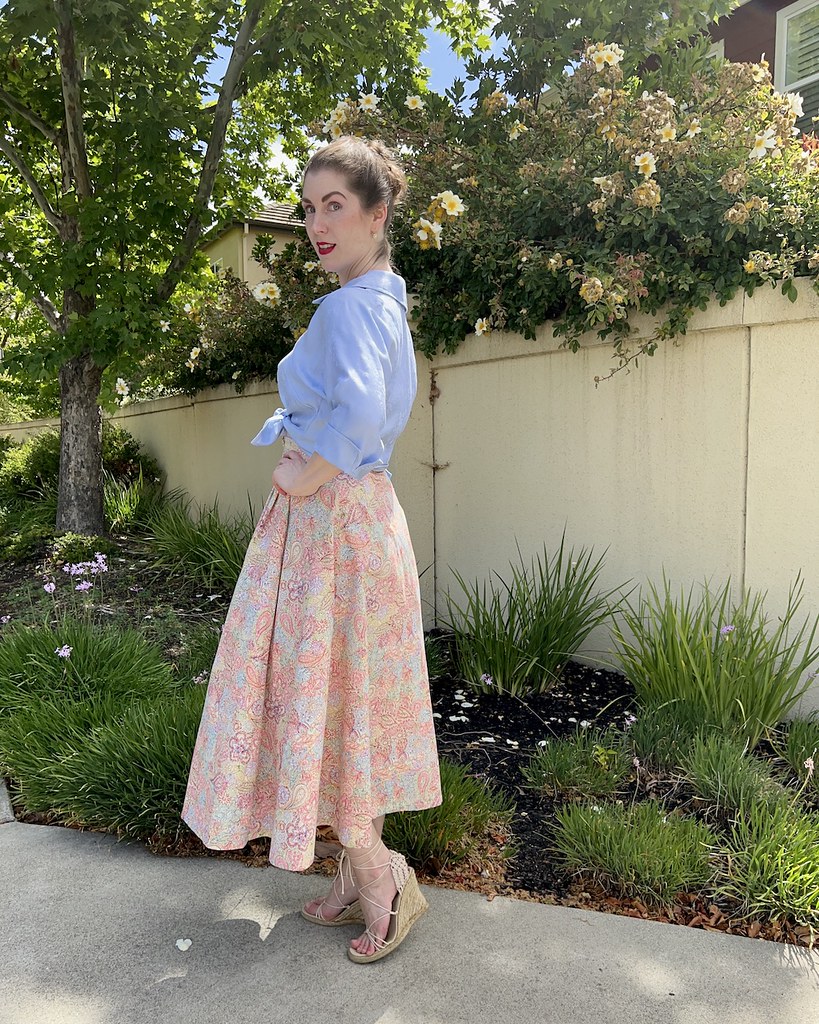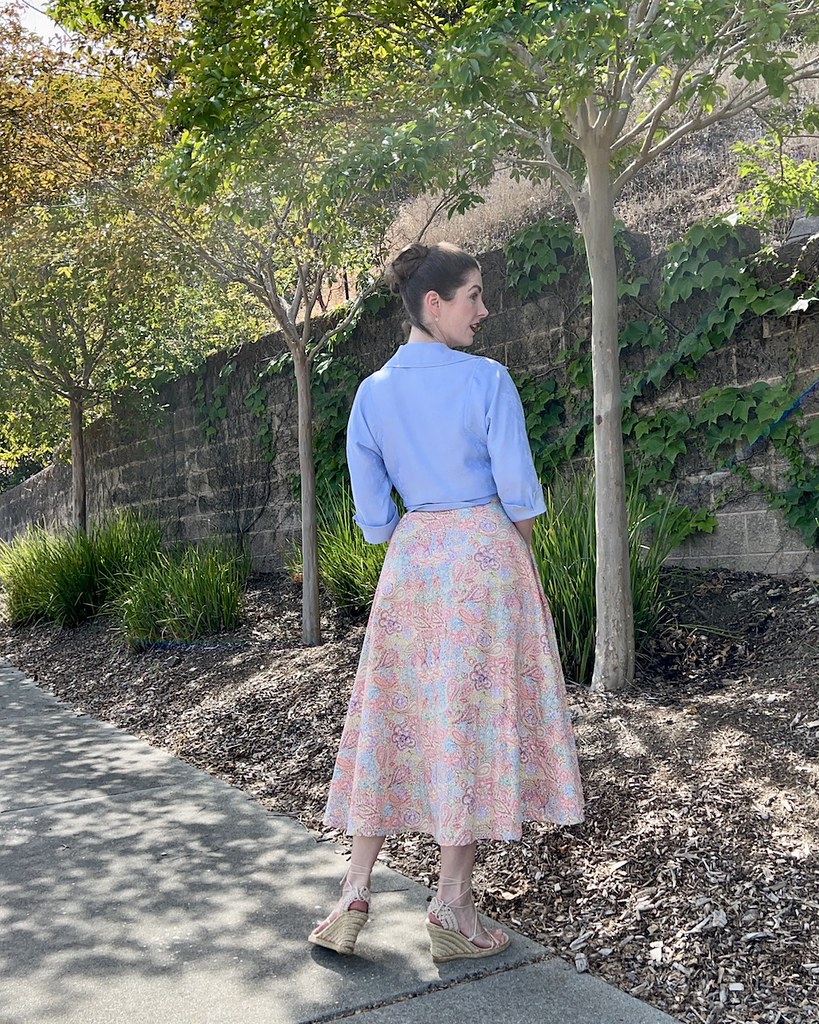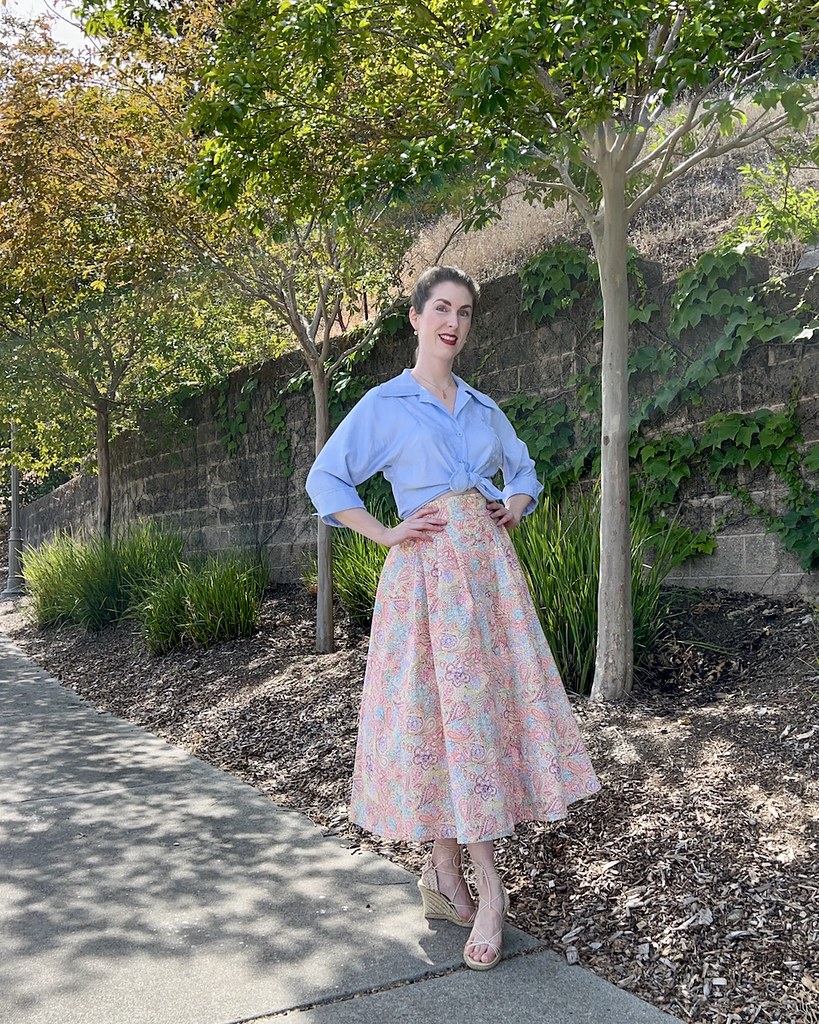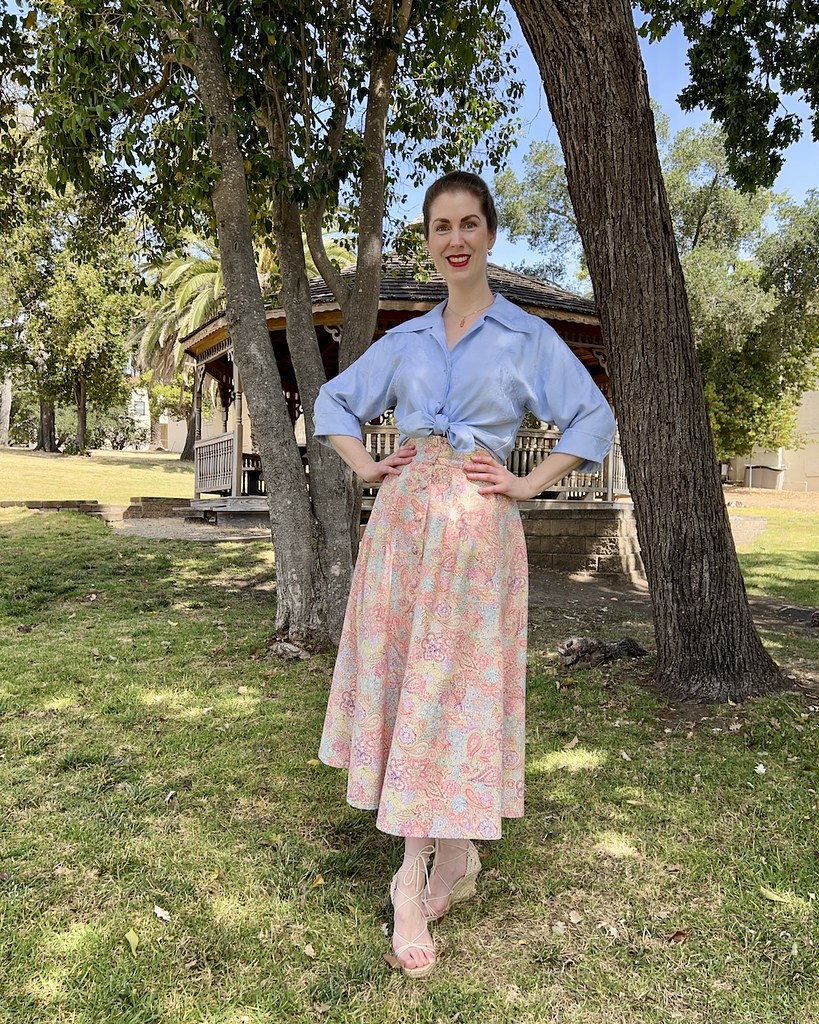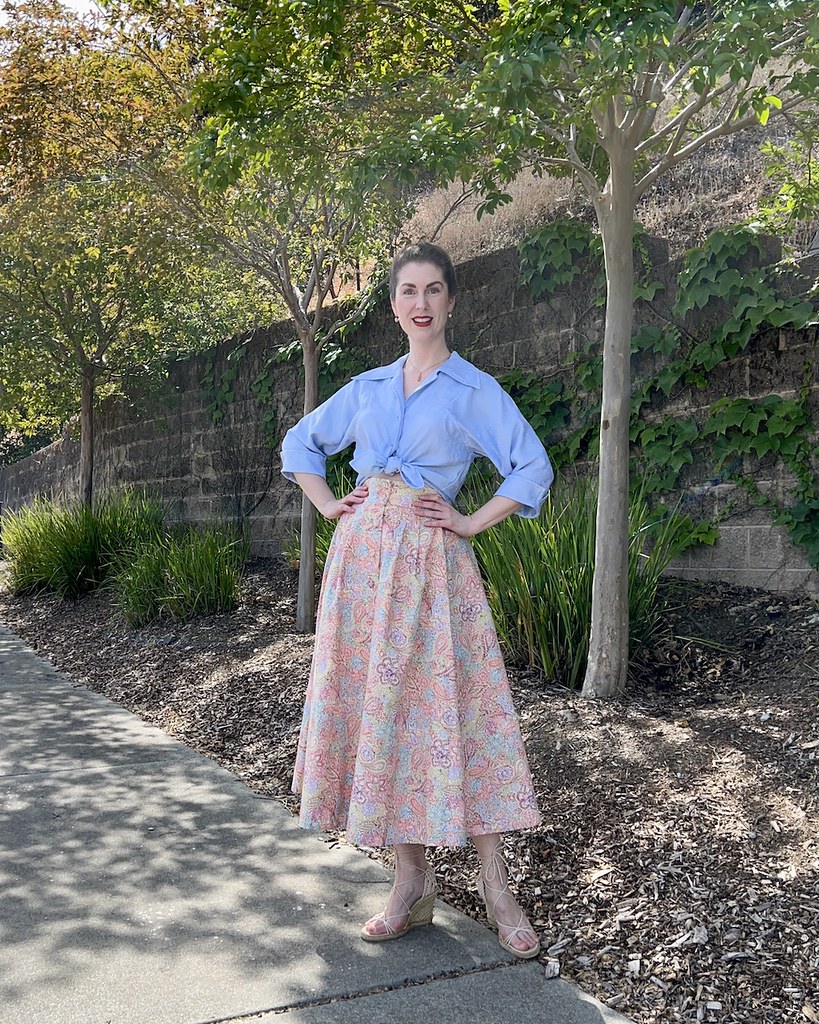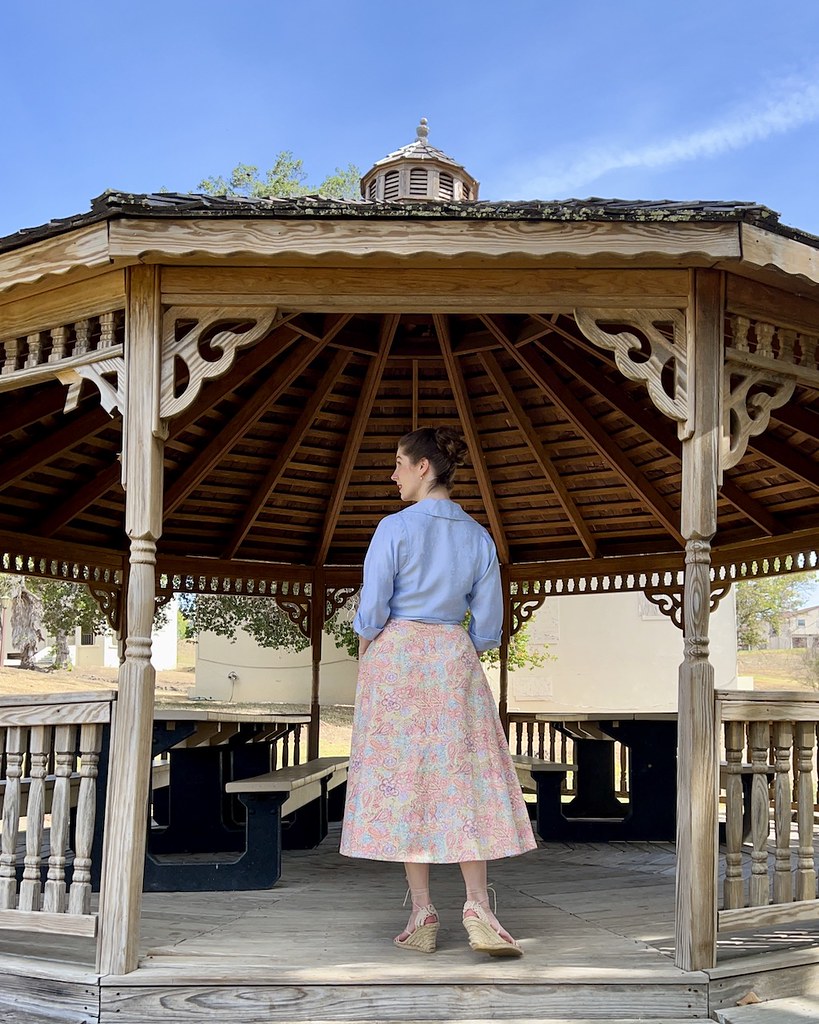It doesn't happen very often, but sometimes I actually manage to cut into a new pattern within a few months of the design being released. Obviously, this is a reproduction, so the design was initially created back in the 1950s, but Simplicity just re-released it this Summer!
And, as you may have noticed, I was a teeny bit influenced by the pattern illustrations. Earlier this year, I had an urge to work with cotton piqué. It all began with a search for a solid colored fabric that I liked enough to use for another circle skirt. Texture is so much more interesting than plain weave, in my opinion, especially in a solid color. I like twill weaves, but I was reminded of piqué when I stumbled on an old project. So off I went, searching for cotton piqué online. And while this isn't a solid color, when I found this print I couldn't resist purchasing some of it. The pairing with this pattern actually came later, although I would like to think the two were always meant to be.
What initially had this pattern at the front of the queue, though, was the pockets!
I have mentioned in the past that I am not a huge fan of in-seam pockets. I never end up using them since they pull the garment out of shape with anything substantial in them, and as someone with round hips, they can potentially keep a garment from hanging properly even when empty. But a shaped patch pocket? Sign me up!
These particular pockets have quite a few layers, what with that bias band underneath the pocket itself.
My choice of a rather spongey textile was on the thick side for such an application. But it worked out okay in the end. Hand basting is always a helpful part of the process!
The bodice is also gorgeous. I just love it when a design plays around with dart placement.
And the way the bias band at the neckline mirrors the pocket detailing is perfection.
The instructions have the boning applied after the lining is in place, but I decided that I would rather have those channels sandwiched in-between the two layers.
The only white cotton that I had on hand is not as bright as the white in the printed fabric. I was slightly annoyed about this, but I felt that it would be silly to go out and purchase another yard of fabric just for the lining. I was also rather impatient to finish the dress, so I had to find something in the house that would work.
The zipper application on this pattern is something I have seen before in vintage clothing. The dress is completed and the opening seam finished, all before the zipper is installed.
For this particular design, this makes it much easier to match the bias band portions at the top of the center back opening. It would also make it quite convenient to swap out a zipper that had failed. I know that nylon zippers were in existence in the 1950s, but I believe metal zippers were much more common, and once those guys are broken, they are almost impossible to fix. The self-repairing nylon zippers are a lot more forgiving, so I do wonder if this construction technique has something to do with the possibility that a zipper might fail.
This skirt has quite a bit of bias to contend with, and the fabric drapes very nicely, which means I had to even out the hemline (NOT my favorite part of the process).
There was also some seam binding involved . . . which I am sure surprises no one who has been around these parts for any period of time!
Since I didn't want the weight of the garment hanging off of the straps, I also added two ribbon hangers.
The zipper I had in the stash was slightly long, so I cut and finished that end with a scrap of fabric. And with that, the dress was complete!
The shape of that bodice is fabulous!
And I had the perfect buckle tucked away to finish the belt.
This design is good one and I would recommend it - just make sure your fabric isn't too thick for those pockets.
And I am so pleased that I found this patterned piqué while I had this design sitting on my sewing table, waiting for the perfect fabric to appear.
This dress has already been worn quite a few times, which is a good sign, and a clear indication that I am happy with the way a project turned out. But it's really hard to go wrong with a classic 1950s silhouette, isn't it?!









